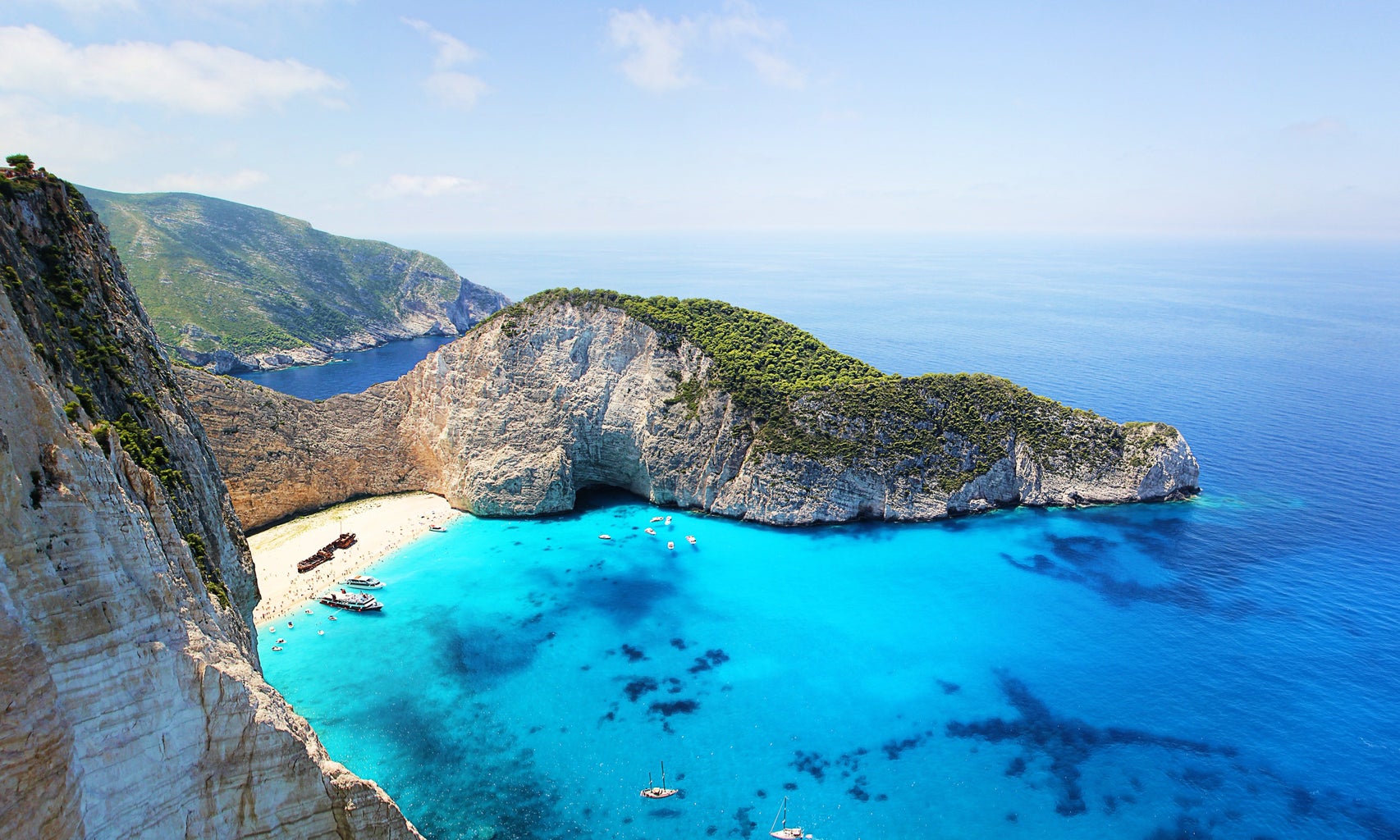Traveling is one of the most exciting things you can do. Greece, in particular, is authentic in its architecture, artifacts, and history. Its gorgeous beaches, welcoming culture, and impressive monuments will leave you in awe and you won’t want to go home! This article will give you a broad guide to where to visit and what to expect, from the perspective of a “local.”
Before diving into this guide, I wanted to give a little background of Greece. If you do not speak Greek, it’s okay! Everywhere you go, especially Athens and the islands, it is likely to be greeted in English first. Many tourists go to Greece, so they are very accommodating. At restaurants, you will be presented with menus that have English translations offered. In most places in Europe, smoking a cigarette is very popular. In any restaurant you go to in Greece, expect to see at least two ashtrays per table. Also, it is important to note that nightlife in Greece is very important. Everyone is out at night. Most restaurants are open until at least 2 a.m. and many bars and clubs open around 11:30 p.m. You should expect to have long nights, especially on weekends, and late mornings.
When planning out your day it is also crucial to know that in the summer, shops and some restaurants in Athens usually close in the afternoon, between 2 p.m. and 4 p.m. Heat in the summer months is so strong in the afternoon that residents are urged to stay inside where there is air conditioning. Since Athens is away from the coast and built with little greenery and more non-permeable surfaces, heat is easily trapped in the city. Humidity in Greece is very prominent and makes the already hot temperatures even worse. That is why sunscreen and hydration are crucial in this area. Now that you have a general idea of what to expect, let’s dive into the guide!
- go to santorini, not mykonos!
-
Santorini and Mykonos are two of the most popular islands in Greece. With that being said, they are also two of the most expensive islands to visit. If you are looking for which one to choose, I would recommend picking Santorini over Mykonos. Mykonos is very youthful and lively. You can expect to be up all night at some of the best bars and clubs in Greece. While that sounds very appealing to some, if you are looking for more culture and breathtaking views, Santorini is definitely worth visiting. Mykonos is also the windiest island in Greece so it gets chilly there, even in the summer. Santorini has one of the best sunsets around the world and the island keeps up with the beautiful all-white architecture with blue doors and windows. I recommend going to Oia, as it is the most popular spot to take a picture of the sunset.
Jackie Ryan / Her Campus - spend a few nights in Athens
-
If you are on a time crunch, you might want to consider cutting your time in Athens short. The only things this capital has to offer for tourists are the Parthenon and the Acropolis museum. While those are beautiful and it is interesting to learn about the history of Greece, those only take a day to see. In general, Athens does not have much that really brings out Greek culture. It looks just like any other city, just with Greek headlines instead of English! I would suggest spending a few nights in Athens to experience the restaurants, nightlife, and museums, but after that, you might want to hop on a boat and visit the islands.
- visit in June
-
While it may be hot, visiting Greece in June is preferred because it is right before the peak summer months. In July and August, it gets very crowded, especially in popular islands, and it gets very pricey. It becomes very difficult to book hotels, planes, and restaurants. July is the hottest month, especially in Athens, and August is usually the time when the locals go on vacation. June is ideal because it is still warm out, but not uncomfortably humid and it is less crowded.
- stay in crete
-
Crete is the largest island in Greece and has so much to offer to tourists. With beautiful architecture, elegant beaches, and historical landmarks and monasteries, I recommended staying at least two weeks to be able to capture everything the island sets forth. Crete’s capital Heraklion, where the ferry will most likely take you, has the Archaeological Museum, a famous museum with artifacts from Crete’s ancient civilizations. The island’s capital also has many beautiful beaches and upbeat nightlife. After landing in Heraklion, go to Chania for a few nights to experience smaller Greek villages and get a glimpse of the authentic culture. In Chania, the Old Venetian Port is a historic monument that is now surrounded by lively restaurants. Wondering what beaches to go to? Consider visiting Elafonisi, the sand there is pink!
This guide is very broad and does not cover even half of what Greece has to offer. I would suggest planning a few trips to Greece if you want to truly capture all of what the country has to offer. This guide only skims some of the essential places to go to in Greece through the lens of a “local.” Take this travel guide as an excuse to book your next trip to Greece!
Can’t get enough of HC UMass Amherst? Be sure to follow us on Instagram, listen to us on Spotify, like us on Facebook, and read our latest Tweets!





